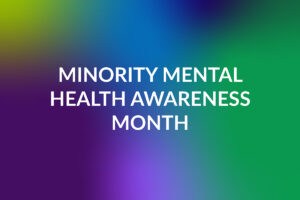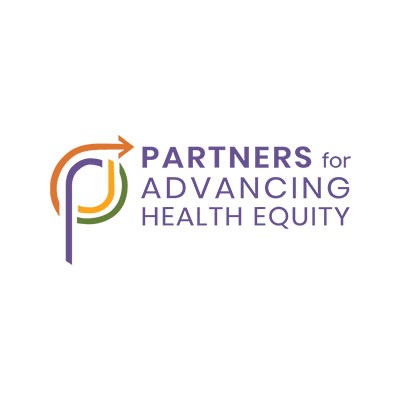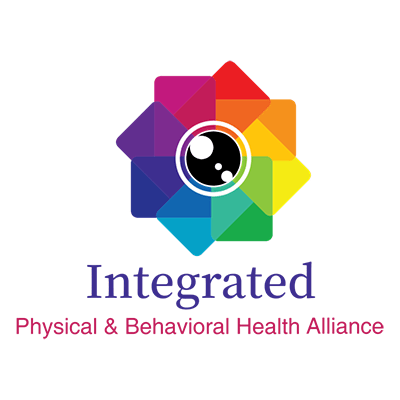At the heart of our Doctor of Behavioral Health (DBH) program lies a dynamic curriculum meticulously crafted to shape visionary innovators in the field of integrated behavioral health. Dive into a multidisciplinary approach that integrates clinical expertise and medical literacy with entrepreneurial acumen, offering you a comprehensive skill set that goes beyond traditional behavioral health boundaries.
DBH Program Curriculum & Training
 The Doctor of Behavioral Health (DBH) program reflects the training 21st century behavioral health providers need to be successful. Our course offerings fall under the Doctorate of Behavioral Health (DBH) program’s three pillars: Medical Literacy, Integrated Behavioral Health Interventions, and Entrepreneurship.
The Doctor of Behavioral Health (DBH) program reflects the training 21st century behavioral health providers need to be successful. Our course offerings fall under the Doctorate of Behavioral Health (DBH) program’s three pillars: Medical Literacy, Integrated Behavioral Health Interventions, and Entrepreneurship.
- Medical literacy: Behavioral health providers must understand common medical conditions seen in primary care in order to consult effectively with the medical team
- Behavioral health providers must employ Evidence-based integrated behavioral health interventions for primary care that are efficient and effective in contributing to cost savings by reducing unnecessary medical care services and costs
- Twenty-first century behavioral health providers must have solid Entrepreneurship skills & expertise, such as innovative financing arrangements, writing a business plan, marketing, and return on investment analyses specific to healthcare
DBH Program Outcomes
The DBH Program equips students to excel in delivering patient-centered care, collaborate within interdisciplinary teams, employ evidence-based practices and quality improvement methodologies, and harness the power of informatics. Our overarching objective is to proactively meet the demand for clinicians and healthcare leaders adept at navigating shifts in the nation’s patient population and evolving practice landscapes.
Doctor of Behavioral Health (DBH) Program Outcomes
- Consult effectively with the medical team as a behavioral health expert using knowledge of medical culture and acute, chronic, and comorbid conditions.
- Deliver evidence-based screening, assessment, and behavioral interventions appropriate for primary care and specialty medical settings.
- Design cost-effective population health approaches to treating chronic and comorbid conditions while addressing social determinants of health.
- Design and evaluate evidence based practice for behavioral conditions in medical settings based on principles of quality improvement.
- Create a business case based on a population health approach to improving access to quality, integrated healthcare.
Course Organization
Below is a table illustrating the alignment of DBH core courses to the program pillars.
| DBH 1000: Foundations of Doctoral Study (3 credit hours – required) |
||
| Pillar I: Medical Literacy (9 credit hours required) |
Pillar II: Integrated Behavioral Health Interventions (12 credit hours required) |
Pillar III: Entrepreneurship (12 credit hours required) |
| DBH 9000: Pathophysiology in Biodyne Context (3 credit hours) |
DBH 9901: Biodyne Model I (3 credit hours) |
DBH 9013: Legal and Ethical Issues in Healthcare (3 credit hours) |
| DBH 9010: Psychopharmacology for the DBH (3 credit hours) |
DBH 9902: Biodyne Model II (3 credit hours) |
DBH 9014: Quality in Healthcare (3 credit hours) |
| DBH 9011: Neuropathophysiology for Behavioral Health Providers (3 credit hours) |
DBH 9012: Population Health Management, Cost Offset & ROI (3 credit hours) |
DBH 9015: Business Practices for the Biodyne Entrepreneur (3 credit hours) |
| DBH 9022: Health Equity (3 credit hours) |
DBH 9018: Leadership & Strategic Development in Healthcare (3 credit hours) |
|
| Elective & Independant Study Courses (14 credit hours) |
||
| DBH 9101, 9102, 9103: Culminating Project (10 credit hours required) |
||
Course List
The Doctor of Behavioral Health degree program course list is not just an itinerary—it’s a roadmap to your academic and professional success.
| Foundations of Doctoral Study – 1 credit hour – required | ||||
| Course Number | Course Title | Credit Hours | Course Description | Pre- or Co- requisites |
| DBH 1000 | Foundations of the Biodyne Model | 3 | The focus of this course is on the Biodyne (Greek for “life change”) Model of brief, focused interventions across the lifespan developed by the renowned psychologist Dr. Nicholas A. Cummings and his daughter, psychologist Dr. Janet Cummings. Emphasis will be placed on the Biodyne assessment and intervention model rather than one-size-fits-all approaches to psychotherapy. This course will focus on use of the Biodyne Model of assessment and intervention for the DBH working in fast-paced primary care settings as well as other models of integrated healthcare delivery. Assessment tools for common chief mental health complaints and comorbid health conditions will be covered, and limitations of these assessment tools will be discussed. | Co-req:
DBH 9901 |
| Medical Literacy Courses – 9 credit hours – required | ||||
| DBH 9000 | Pathophysiology in Biodyne Context | 3 | The course provides an overview of pathophysiology and medical treatment of common medical conditions in primary care (e.g., diabetes, hypertension, asthma, coronary artery disease, cancer, etc.). The emphasis is on normal functioning of all systems within the human body, major diseases within each system, common medical treatments for each condition, comorbid behavioral conditions, and behavioral treatments that can serve as prevention and adjunct treatment. | Pre-req.
DBH 1000 DBH 9901 |
| DBH 9010 | Psychopharmacology for the DBH | 3 | The course provides an overview of psychopharmacology, including basics of pharmacology sufficient to understand mechanisms of action, side effect profiles, interaction effects, and other issues related to the biology of psychotropic medications. The course emphasizes responsible psychotropic medication use, with a focus on which patients are likely to be medication responsive and which patients would be better treated with other (behavioral) interventions. | Pre-req. DBH 1000, DBH 9901 |
| DBH 9011 | Neuropathophysiology for Behavioral Health Providers | 3 | This course explores the biological basis of human behavior with an emphasis on the anatomy and physiology of the neurological and endocrine systems. Functional neuroanatomy and experience-dependent brain plasticity are explored. Particular attention is given to psychoneuroimmunology, behavioral genetics, neuropsychological assessment and brain-imaging methods, and stress/trauma. | Pre-req. DBH 1000 DBH 9901 |
| Integrated Behavioral Health Interventions – 12 credit hours – required | ||||
| DBH 9901 | Biodyne Model I: The Biodyne Model in Integrated Care Settings | 3 | This course is an orientation to the program and to the essential skills needed to pursue a Doctor of Behavioral Health graduate program. Doctoral level skills, such as academic integrity, time management, effective use of the library, comprehending complex scholarly texts and research articles, and APA form and style in professional communication are also introduced. Students will learn to formulate ideas, search for and appraise text and online resources, and critically analyze and thoughtfully synthesize research findings. The student will become familiar with various writing and communication formats, and practice those appropriate to their degree and career goals. Special attention will be paid to the skill set needed to enter integrated care settings, the use of the Biodyne Model in these environments, and how to market oneself effectively as a new Behavioral Health Consultant. | Co-Req: DBH 1000 |
| DBH 9902 | Biodyne Model II: Assessment and Behavioral Interventions for Chronic & Comorbid Conditions | 3 | The focus of this course will be on the experience of chronic illness from both the patient’s and the provider’s standpoint. Emphasis will be placed on biopsychosocial aspects of chronic illnesses and Biodyne Model behavioral interventions, as well as effective health change methods, including health promotion and health-focused psychotherapy and counseling. Considerations for treating special populations and culturally diverse patients will be discussed. | Pre-req. DBH 1000, DBH 9901 |
| DBH 9012 | Population Health Management, Cost Offset & ROI | 3 | Preventing and improving chronic disease outcomes can reduce overuse of health services and associated costs as demonstrated by integrated behavioral healthcare intervention research. These interventions are typically delivered in integrated settings such as primary care and based on the population health management model. This course will review advanced applications of population-based behavioral interventions such as design, measures, analysis, cost and cost savings, and return on investment for chronic conditions. Students will review evidence-based interventions include therapeutic lifestyle change, medication adherence, cognitive behavioral treatment and other emerging healthcare interventions using eHealth methods. This course meets the demand for innovative, research-supported approaches to reducing healthcare costs by improving disease prevention and management outcomes as required by healthcare reform paradigms such as Accountable Care Organizations (ACOs), Health Homes, Patient-Centered Medical Homes (PCMHs), and Meaningful Use initiatives. | Pre-req. DBH 1000, DBH 9901 Recommended Pre-req: DBH 9902 |
| DBH 9022 | Health Equity | 3 | This course will focus on factors associated with disparities in health status and the delivery of health care and identify possible interventions and solutions. Students will explore relationships among individual characteristics such as gender identification, education, income, literacy, race, ethnicity, culture, acculturation, disability, age, and sexual orientation; interpersonal factors such as communication with healthcare providers, family and social ties, and discrimination; and societal-level factors such as neighborhood and community context, health care organizations, economics, politics and policies and seek to understand how those factors shape health behaviors, access to health care services, unequal treatment, and health status in the United States. Students will critically examine the multifaceted issue of health disparities faced by vulnerable populations, review health policy and social programs regarding their ability to reduce or eliminate inequality, propose alternatives, and identify steps practitioners, leaders, payers, and systems can take to reduce parity gaps. | DBH 1000 DBH 9901 Recommended Pre-req: DBH 9902 DBH 9012 |
| Entrepreneurship – 12 credit hours – required | ||||
| DBH 9013 | Legal & Ethical Issues in Healthcare | 3 | This course addresses legal and ethical considerations associated with the professional practice of Doctors of Behavioral Health in healthcare settings. Consideration of the legal right to make health decisions and the consequences of poor mental and physical health on a person’s ability to exercise one’s own legal rights will be examined. Students will review legal terms related to healthcare, including conducting personal affairs, making healthcare and end of life wishes known, and ensuring wishes are respected. Steps patients can take to protect themselves against losing control, particularly important for older adults, will be examined. | Pre-req. DBH 1000, DBH 9901 |
| DBH 9014 | Quality in Healthcare | 3 | This course provides an overview of healthcare quality management including performance measurement and models of pay for performance. Relevant history of contemporary quality metrics and accreditation entities will be discussed. In addition, the course will address the evolution of behavioral health quality measures within primary care and advancement of quality models and initiatives related to integrated care. Students will also explore relevant healthcare legislation and its effects on these models.This course prepares behavioral health clinicians to provide care consistent with quality measures used in primary care and other medical settings within healthcare reform paradigms. | Pre-req. DBH 1000 DBH 9901 Recommended Pre-req: DBH 9012 |
| DBH 9015 | Business Practices for the Biodyne Entrepreneur | 3 | This course addresses legal, ethical, and business considerations associated with the professional practice of Doctors of Behavioral Health. Professional ethical standards and codes of ethics are compared and contrasted. Special attention will be given to models of management and organizational leadership, financial and legal considerations in structuring a business, and legal requirements in healthcare practice. Emphasis is given to professional development and entrepreneurial opportunity as a Doctor of Behavioral Health. | Pre-req. DBH 1000 DBH 9901 Recommended Pre-req: DBH 9902 DBH 9012 DBH 9014 |
| DBH 9018 | Leadership & Strategic Development in Healthcare | 3 | This course explores leadership styles and operational structures that promote integration amongst disciplines and healthcare providers. Students will begin to analyze their own leadership style and to examine the types of leaders and team members they will need to gather to improve population health, per capita costs, and the healthcare experience while maintaining a high quality, balanced work life for providers. | Pre-req. DBH 1000 DBH 9901 Recommended Pre-req: DBH 9902 DBH 9012 DBH 9014 |
| Culminating Project – 10 credit hours | ||||
| DBH 1100 | ePortfolio | 1 | The DBH candidate will complete an electronic portfolio to integrate all prior learning, related coursework, and experiences by compiling and improving artifacts created throughout the DBH program. The ePortfolio provides a venue for the student to demonstrate mastery of the program outcomes expected prior to beginning the Culminating Project, also known as the Comprehensive Exam. The student’s advisor and/or portfolio committee works with candidates on an individual basis to ensure that each artifact required in the portfolio is adequately prepared, competency statements and other requirements are written, and a presentation medium is selected to connect these items together. The student will also prepare the ePortfolio for its defense to the Portfolio Committee. The outcome of this course is a scheduled and/or completed Comprehensive Exam (ePortfolio defense). | Pre-req. DBH 1000, DBH 9901, DBH 9902, DBH 9000, DBH 9010, DBH 9011 DBH 9012, DBH 9013 DBH 9014, DBH 9015, DBH 9022 Reserved for DBH Degree Seeking Students* |
| DBH 9101, 9102, 9103 | Culminating Project | 3 | The Culminating Project is an applied integrated care project that demonstrates a student’s innovation in the field, and ability to respond creatively and competently to the needs of rapidly evolving patient populations and healthcare environments. Students will work closely with their advisor, faculty mentor, faculty members, and DBH graduate experts to develop a project that is closely tailored to the student’s career goals after graduation, and which reflects a growing area of opportunity in the healthcare marketplace. Students will begin working on their project when they begin the program through assignments and research conducted in each of their courses. Ideally, the Culminating Project will demonstrate the student’s knowledge of applying evidence-based practice, as well as a thorough entrepreneurial knowledge of the challenges and opportunities in integrated care settings. Students will accumulate a scholarly review of literature, which informs their integrated care project design and implementation, and empowers them to develop a business plan demonstrating skill in entrepreneurial design, planning, and execution. | Pre-req. DBH 1000, DBH 9901, DBH 9902, DBH 9000, DBH 9010, DBH 9011 DBH 9012, DBH 9013 DBH 9014, DBH 9015, DBH 9022 Reserved for DBH Degree Seeking Students* |
| Independent Study and Elective Courses – 17 credit hours required | ||||
| DBH 1100 | ePortfolio | 1 | The DBH candidate will complete an electronic portfolio to integrate all prior learning, related coursework, and experiences by compiling and improving artifacts created throughout the DBH program. The ePortfolio provides a venue for the student to demonstrate mastery of the program outcomes expected prior to beginning the Culminating Project, also known as the Comprehensive Exam. The student’s advisor and/or portfolio committee works with candidates on an individual basis to ensure that each artifact required in the portfolio is adequately prepared, competency statements and other requirements are written, and a presentation medium is selected to connect these items together. The student will also prepare the ePortfolio for its defense to the Portfolio Committee. The outcome of this course is a scheduled and/or completed Comprehensive Exam (ePortfolio defense). | Pre-req. DBH 1000, DBH 9901, DBH 9902, DBH 9000, DBH 9010, DBH 9011 DBH 9012, DBH 9013 DBH 9014, DBH 9015, DBH 9022 Reserved for DBH Degree Seeking Students* |
| DBH 1001 | Success in Doctoral Studies | 2 | This is a course designed to introduce DBH Candidates to the rigor involved with completing doctoral level work. Particular emphasis will be placed on the differences between academic and non-academic writing, how to write and correctly format a literature review, mastery of APA, and making effective use of the technology and learning management system that drives everything at CGI. | Co-req. DBH 1000 |
| DBH 1200 | Scholarly Writing | 1 | This course teaches the array of writing and research skills that are necessary for students to meet and exceed the expectations of a doctoral program. Style and formatting will be taught, as will the ability to effectively integrate, analyze, and synthesize other published works into a new and unique paper. The course will show students how to be direct and precise with their writing so that the finished work is worthy of a doctoral project that can also be published in a professional publication. | Pre-req. DBH 1000 DBH 9901 |
| DBH 9903 | Biodyne Model III: Behavioral Interventions for Families & Couples | 3 | The focus of this course will be on integrated behavioral health interventions for couples and families. Emphasis will be placed on biopsychosocial assessment, individual, couples, and family dynamics, as well as maladaptive personality and coping styles that play causal roles in physical symptoms and chronic illness. | Pre-req. DBH 1000, DBH 9901 |
| DBH 9904 | Biodyne Model IV: Assessment and Interventions for Geriatrics | 3 | This course will focus on a brief assessment and treatment of older adults using an integrated care approach that includes the Biodyne model of behavioral intervention. The course will provide practical information needed by the behavioral health consultant in a medical setting including effective communication strategies; screening for mood, cognition and elder abuse; interventions for common problems that present in outpatient medical settings including depression, grief, memory impairment, alcohol and substance abuse; coping with chronic medical conditions. The course will also highlight interventions and prevention programs for caregivers. | Pre-req. DBH 1000, DBH 9901 |
| DBH 9905 | Behavioral Interventions for Chronic Pain | 3 | This course provides an understanding of the extent to which chronic pain impacts primary care and population health, the impact of chronic pain on both patients and caregivers, subjective and objective elements of pain perception and assessment, the uses and dangers of pharmacological pain treatment, and behavioral treatments that have proven effective for effective pain management. The course promotes a “management over cure” perspective, with an emphasis on helping patients to alter their relationship with, and perception of, chronic pain. | Pre-req. DBH 1000, DBH 9901, Recommended Pre-req: DBH 9000, DBH 9010 |
| DBH 9016 | Independent & Specialty Study | 1-3 | Students may take up to 6 credit hours of Independent and Specialty study, while working closely with one or more faculty members, to research evidence-based interventions in specialty areas, such as oncology, OB/GYN, pediatrics, intensive outpatient substance abuse treatment, respiratory therapy, etc. that are not covered in more detail in the required core courses. In certain circumstances, and at the discretion of the Director, Independent Study (IS) may be approved as a substitute or in exchange for required core courses. | Pre-req. DBH 1000 DBH 9901 Others to be determined by the faculty. |
| DBH 9017 | Solving Medical Mysteries | 1 | The purpose of this course is to learn how to successfully diagnose and treat physical illness caused by various forms of psychosocial stress. Because patients are often unaware of the nature or degree of stresses that are responsible for their illness, emphasis will be placed on learning how to detect and use clues that the patient provides to develop a more complete understanding of the patient’s struggles than they are able to perceive for themselves. A major part of the course will be selecting, assessing and treating a patient known to you who has medically unexplained physical symptoms. | Pre-req. DBH 1000, DBH 9901 |
| DBH 9019 | Intervention Design Models: Application of Behavioral Learning Theories | 3 | This course will examine major theories and models of cognition, motivation, and health behavior and their application to the practice of health behavior change. Special attention is given to the use of theory in planning effective intervention programs in primary care and other medical settings and the use of health behavior theory in addressing health issues in diverse populations. | Pre-req. DBH 1000, DBH 9901 |
| DBH 9020 | Military Families and Veterans | 1 | This course introduces behavioral health providers to the elementary concepts and principles related to healthcare needs of military personnel and their dependents. This course will use the Biodyne model and other evidence-informed techniques to deliver culturally-competent interventions to service men and women and their families. Variables examined include the history of military healthcare, the journey for scientific methods, and understanding how this subculture views and approach healthcare. In addition, operational strategies designed to assist with overcoming barriers to seeking treatment will be explored. This course will review tools and resources designed and implemented to assist civilian providers in integrated healthcare settings and will identify and develop new tools and resources for use in integrated settings of care. | Pre-req. DBH 1000, DBH 9901 |
| DBH 9021 | Women’s Health | 1 | The Women’s Health course elective focuses on the integrated healthcare needs of women from adolescence through older adulthood. Program content examines the comprehensive bio/psycho/social/spiritual/ cultural needs of women, including care quality improvements needed in reproductive, gynecological, prenatal, postpartum settings, common minor and acute health problems, as well as influences that affect women’s lives. Emphasis on Integrated Behavioral Health Interventions used in health promotion, risk reduction, clinical decision making and management of Women’s health issues, perinatal care of mothers and infants, and gynecological health. | Pre-req. DBH 1000 & DBH 9901 |
| DBH 9024 | Leading Edge Trauma Therapies for Integrated Care | 3 | This course will familiarize students with a spectrum of innovative trauma therapies that neurophysiological studies have documented to accelerate the treatment of pathologies related to traumatic stress. Course content provides an introduction to the following interventions: EMDR; somatic therapies, including sensorimotor psychotherapy (SP) and somatic experiencing (SE); Internal Family Systems (IFS), Applied Neurofeedback; and Psychedelic Assisted Psychotherapy (PAP). | Pre-req. DBH 1000 & DBH 9901 |
| DBH 9026 | Trauma Informed Care | 3 | This course provides an in-depth exploration of the impact of trauma on health outcomes. Students will identify operational practices that may re-traumatize patients and lead to provider burnout, and develop realistic strategies for mitigating or resolving trauma history and compassion fatigue. Students will pitch ideas for healthcare systems who’ve set out to meet Triple Aim requirements as well as reduce provider burnout and compassion fatigue. | Pre-req. DBH 1000 & DBH 9901 |
| DBH 9027 | Treating Substance Use Disorders in Integrated Settings | 1 | The substance abuse elective course focuses on the integrated health care needs of individuals from adolescence through older adulthood, with an emphasis on substance use disorders. Course content explores Big Pharma’s role in the opioid epidemic, the correlation between chronic pain and substance use disorders, the micro, mezzo, and macro costs associated with substance use, substance use disorder assessment tools, SBIRT, MAT treatment options, emerging treatment options, in addition to treatment options for opioid use disorders for pregnant women. Emphasis on integrated behavioral health interventions utilized in health promotion, risk reduction, clinical decision making and management of patients with substance use disorders. | Pre-req. DBH 1000 & DBH 9901 |
| DBH 9028 | Intergenerational Trauma | 1 | This course provides an introduction to intergenerational and racialized trauma. Research in the field of epigenetics illustrates that the untreated effects of trauma suffered by one generation, whether individual or collective, are passed on to up to four subsequent generations. We will explore historical and current research on the transmission of trauma among specific oppressed populations including select ethnic groups and BIPOC. This course will teach DBH-Cs to recognize intergenerational transmission of trauma, understand the mechanisms of transmission as well as implications for integrated care, along with effective treatment strategies. | Pre-req. DBH 1000, DBH 9901 Recommended Pre-req: DBH 9024 |
| DBH 9029 | Integrated Care and Autism | 3 | The course provides an overview of autism spectrum disorders (ASD) and the physical and mental health conditions that are commonly associated with it. Emphasis is placed on how biopsychosocial context can impact an individual’s access to diagnosis and treatment of ASD, in addition to how integrated care can be tailored to promote more effective, timely, person-centered care to people on the spectrum. | Pre-req: DBH 1000 DBH 9901 |
| DBH 9030 | Return on Investment in Healthcare | 1 | This course will assist students with identifying systematic approaches that determine the impact of investments on outcomes. Students will learn how to determine return on investment in healthcare, identify financial goals and objectives and calculate expenses and items that belong on a budget sheet. | Pre-req. DBH 1000 DBH 9901 |
| DBH 9031 | Healthcare Marketing for the DBH | 3 | Understanding marketing principles and how to apply them is essential for every DBH within the healthcare industry. An effective leader should understand the healthcare “customer” to effectively define their market, influence the customer and deliver the service. In this course, we will explore the role of marketing and social media in a healthcare organization and use marketing research and data to defend marketing strategies, technology, and brand image. Students will apply marketing principles to construct an integrated marketing plan focused on the DBH as a behavioral health consultant. | Pre-req. DBH 1000 DBH 9901 |
* An enrollment exception may be granted to non-degree seeking students per the discretion of the Director. If granted, a non-degree seeking student may be advised to withdraw from a course per the discretion of the Director and/or course Faculty.




























